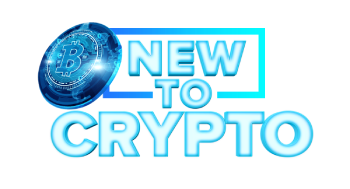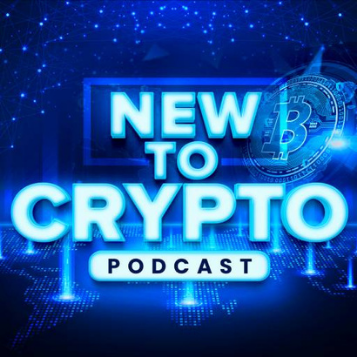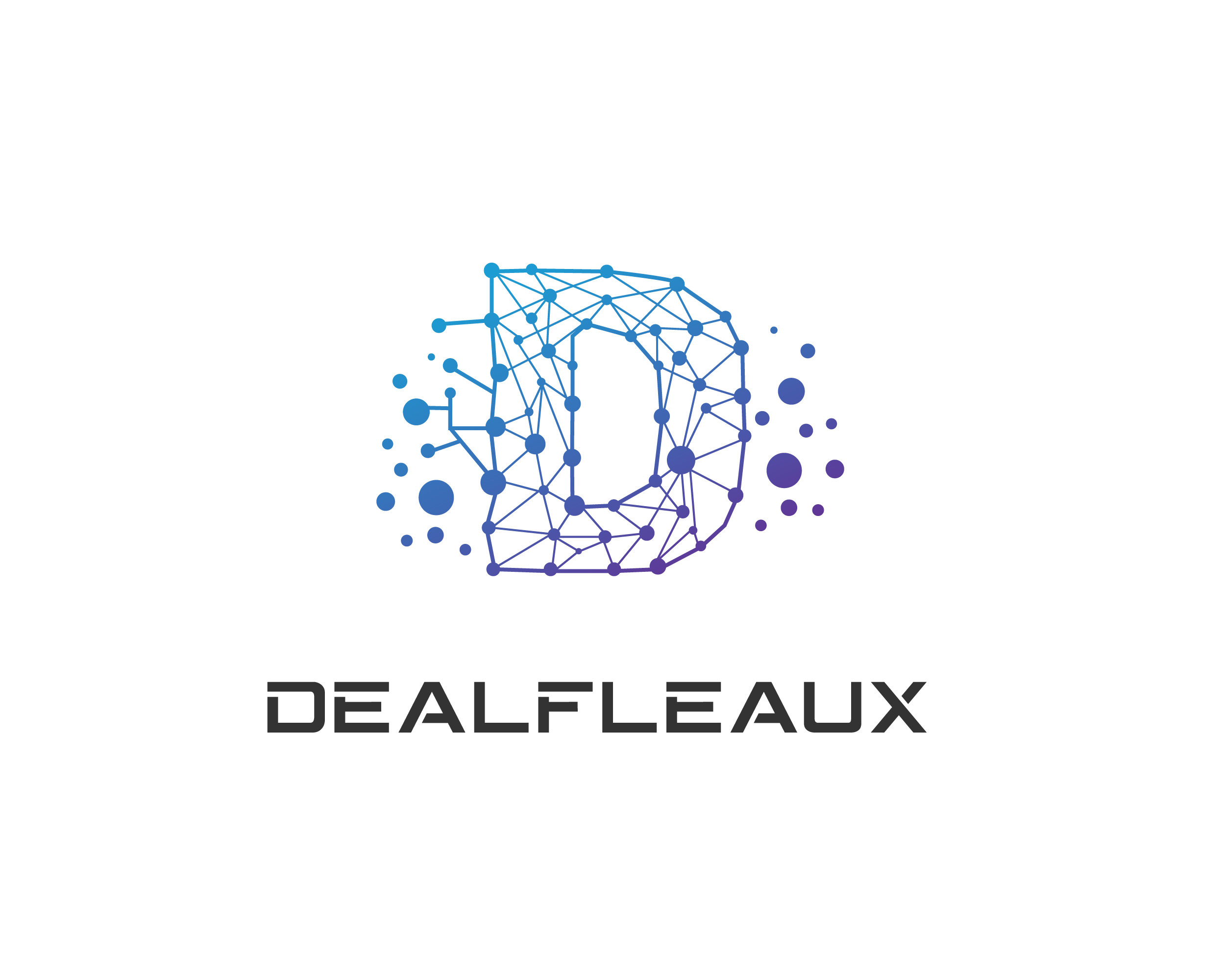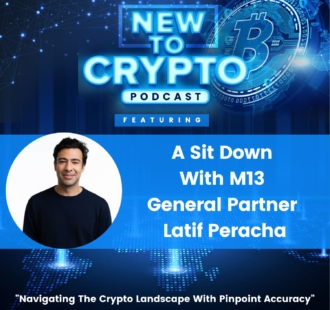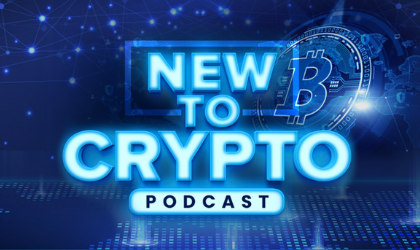A Sit Down With Latif Peracha General Partner M13
Sat, Dec 31, 2022
SUMMARY KEYWORDS
M13, crypto, bitcoin, market, network, blockchains, token, investing, building, buy, company, investors, people, web, investments, applications, solana, invest, consumer, latif peracha, crypto travels michael
SPEAKERS
Latif Peracha, Crypto Travels Michael
Michael 00:01
Welcome to the New To Crypto Podcast designed to guide you through the crypto landscape with pinpoint accuracy created for the new and intermediate crypto investor. Join your host Crypto Travels Michael as he takes you through the different facets of getting started and succeeding in your crypto journey. New To Crypto Podcast brings you new episodes daily Monday through Friday with surprise bonus episodes sometimes on the weekend. Let me ask you, Are you new to crypto and don’t know where to start? Are you more experienced but have questions? Then you’re in the right place. This podcast is designed for you coming at you from the trading center in the lifestyle design studio. Here’s your host Krypto travels Michael. This episode is brought to by https://dealfleaux.io/ and was created to connect intentional founders with intentional capital. If you are a project looking to raise capital or an investor or fund looking for vetted projects, visit https://dealfleaux.io to apply to work with us.
Latif Peracha 01:15
Hey, welcome to today’s podcast. Welcome to the show. Today’s interview is definitely one you do not want to miss. Our guest is a general partner of M13. He manages the overall investment strategy for M 13. With a large focus on investing in web three. M13 has invested by the way in lightning labs stepping in Meelo. And our guest was previously the managing director at Virgin Group where he was basically investing in the Americas for them, including investments for brands like you’ve probably heard of slack ring capsule, TransferWise, Virgin Galactic, and Virgin orbit. He currently serves on the advisory board at the University of Michigan. Please do me a favor and welcome our guest, Mr. Latif parotta. To the show. It’s a pleasure to have you here. Thanks so much for having me. Great to be here.
Michael 02:05
Hey, man, definitely could you just share a little bit about yourself before we dive in?
Latif Peracha 02:10
Sure thing. So I am a general partner M13. We are an early-stage consumer technology fund. And we will get into some of what we do, I think a little bit later. But previously to this, I was writing investments at Virgin Group for nearly a decade. And that’s really where I grew up as a professional and got to work on everything from, you know, incubating and investing in virgin brands like Virgin Galactic and Virgin orbit, which are in the aerospace industry, to starting to buy bitcoin in 2014, to then leading our venture strategy across a bunch of the portfolio companies that you just mentioned. And it was really, during that time at Virgin, that I realized, while I was doing many really interesting things, it was really my calling to go be a dedicated VC. And that led me to M13. Other than that I’m based in New York, and have a beautiful wife, two young boys, and a diehard University of Michigan supporter, as you probably indicated in the in the bio.
Michael 03:19
Fantastic. Thanks for sharing that. Before we dive deeper into everything in M13. And some other topics, can you just share with our listeners, maybe just an overview, for those that may not be familiar with them? M13
Latif Peracha 03:33
Yes, so we are as I mentioned, an early-stage, consumer technology venture capital fund, we are between Los Angeles in New York, and we manage around 900 million in assets. And the focus of the firm is to understand the future of consumer behavior and invest in the enabling technologies that power that change. That is a broad mission. And then as we think about verticals, where we think about the future of money, the future of commerce, the future of health, and the future of work, those are very broad by design, I focus a ton of my time on FinTech and web3, which is really kind of today and the future of money, vertical, but we think over the next decade, it will permeate kind of all parts of the consumer economy. So just like we talked about, we don’t talk about mobile today as like a theme of the back, you know, you probably remember 2010 2011 2012 You would invest in mobile as a theme. And I think we talked about crypto and web three as a theme today.
But I think if you fast forward, similarly eight or 10 years, it will be again, just part of everything that we look at and everything that we invest in. Other than that, I can tell you we write initial checks between one and 15 million to a broad range. We typically lead rounds, equity companies where we’re taking 15% of the business and taking a board seat And then when we invest in crypto networks, as you know, it’s a little different, and the rounds are more syndicated. And we are typically more flexible, but we look to take three, four, or 5%. Of, of the fully diluted network if we’re looking at it as a crypto network. We also have I mentioned, we’ve got two offices, one in Los Angeles, and one in New York. And we are very focused on not just being really good thematic investors, but also really being very hands-on with our portfolio. So we have a platform called propulsion. And that is meant to really support our founders and really key areas. So we’ve brand data, marketing, and people and talent. And we’ve got world-class partners that wake up every single day thinking about our companies. And that doesn’t matter if you’re building a web two company or a web three company, those fundamentals are really really important as you’re trying to scale a company. And so that’s been a tremendous value add and something that gives us we think, a real edge when it comes to supporting our companies.
Michael 06:06
Absolutely. No, I definitely agree. You touched on web3, I wanted to ask you about your own personal history and web3.
Latif Peracha 06:13
Sure, yeah. As I mentioned, we started buying Bitcoin at Virgin in 2014. But what’s interesting is it wasn’t any really financial thesis back then there wasn’t like the digital gold thought or you know, all the ones and twos, it was very, very nascent at the time. And for us, it was actually a social experiment, because we had this idea, or the thing that blockchains represented to us was this these immutable records, which actually meant that if you own property in, in Syria, which actually at the time was going through quite a big civil war, or in another non-democratic state, you can always have a record of that property. And that can never be taken away from you. And that was a really interesting idea that blockchains represented, and Bitcoin was a way to get exposure to that idea. And that’s why we made the investment and then we woke up a couple of years later, and kind of looked at the Ledger’s about how much is this thing worth again, and so that was a good investment, and then went further down the rabbit hole and got into Aetherium 1617. And actually, everything everyone, really everyone has that moment where you realize that there’s something pretty interesting here. And for me, I actually bought a ticket on a whim to this event called the token Summit, which happened at NYU’s campus and early 17. And I spent a day in this room with some tremendously famous people in crypto today. But at the time, it was still all very nascent. And I walked out of that room really believing that there was something fundamentally important happening in this market, and have been perpetually down that rabbit hole ever since. And here we are in 2020 to really feel like there isn’t much existential risk anymore to the market as it was back then. And now it’s now where’s it gonna come from here?
Michael 08:10
Man, what a story. Thanks for sharing that I know now, you know, now we’re, we’re talking trillions for market cap, you know, of course, right now it’s around one, but we’ve seen it higher than that, you know, to see the market grow from when you first you know, got in or started buying Bitcoin in 14 to now. It’s, I wanted to ask you Latif, for our listeners, what would be the number one piece of advice that you would have for someone that might be, I don’t know, maybe starting a firm like yours, or maybe just trying to invest, you know, at, at a little bit larger investment amount, you know, you’ve been in the industry a long time. And you’ve played a part in many different investments, you know, so your wealth of wisdom for everyone watching?
Latif Peracha 08:57
Yeah, I don’t know about that. I’m learning every single day and try to learn from mentors of mine, but what I would say related to the crypto market, if you’re new to the market, I think the best thing to do and I usually say this is not financial advice for you, you asked a question, so I’ll answer it is I just buy bitcoin and Ethereum I think those are just tremendously really, really good long term investments, almost like you recommend someone buying, you know, just by the index by the s&p. I mean, I think it’s like that, but this has way more upside than say, you know, buying an index. And then what that does is it makes you pay attention at the moment, all the way into something you just pay more attention than when you don’t have $1 into anything. Yeah, so that’s my first advice depending on you know, how much your risk appetite is you can you can figure out how to size it, but I think it’s got tremendous upside. The L ones I think are really, really interesting. They’re public to everybody, but they So I have what I think, you know, is still venture capital type of upside. So you’re getting something that is got real, I think good risk reward. And by the way, unlike venture capital, traditionally, there’s liquidity. So at any point, you can go on and you know, there’s Bitcoin, there’s a theory and we are very bullish as a firm on Solana as a system. And you can go on you or I or, you know, my mom, or whoever can go on and, and buy it and hold it or sell it when you feel appropriate. I think that’s a very interesting feature of the market that comes with some downsides, which is, you know, can kind of drive you crazy 24/7 global market, a lot of volatility. But if you figure out how to manage that, I think it’s a real
Michael 10:45
Well said, well said, I definitely liked what you touched on. If you have $1 in anything, you know, I mean, it’s just that action step moving forward, I’ll tell you, I get asked all the time, especially when I’m out in dinners and stuff. People ask me, What’s the best crypto to buy? And I always bounce back the tennis ball in the discussion? And I’m like, Well, it depends on how long you know, what’s your strategy? Do you want to be in just for a moment? You know, you’re looking for years, you know, you’re looking for the long game, like a decade. So, but yeah, I really, I really agree with Bitcoin in the east. That’s that segues. I think one of the great, go ahead.
Latif Peracha 11:21
One of the great lessons of investing, you know, which relates to the net didn’t teach me this in business school that well, but I mean, just compounding is the most powerful thing in investing, whether you’re talking about venture capital, your public portfolio, your liquid crypto portfolio, just having if your time horizon is long enough. And you’re investing in good things that got a good tailwind behind them, yeah, you know, it’ll they will come out. And so that’s, that’s how I
Michael 11:53
Definitely compounding it’s powerful. I wanna, I wanted to ask you about your thoughts on crypto VC versus say, traditional VC, you know,
Latif Peracha 12:02
Yeah. So. So, for those that may not be familiar, traditional VC as an as an industry is basically raise money from LPs, which are limited partners, or investors and they lock up that money for 10 years, you invest if you’re investing in seed or series A companies, it’s a very unique asset class in the sense that the mortality rate is very high, about a third of the companies go to zero, but a third of them, you get your money back. And about a third of them, you, you know, you you make, you know, all the returns on those companies, which is this idea, which is called the power law. But it’s a very illiquid market and those exits, you invest a one to basically your seven is when you start to see that liquidity and those exits. And along the way, there are ups and downs. And you have, as I said, many of these things don’t work out. And so that’s just a very long cycle. But it is a cycle that rewards people because, you know, the returns in the venture, if you’re in the best funds, the returns are very, very good, you know, 35% 40% IRR, you know, 5x plus cash on cash. And that’s, that’s, that’s great. And you get the added benefit of investing in a, you know, the future advancements for mankind. So people like being involved in technology investments. With crypto, it’s just so different in the sense that, first of all, first of all, the rounds that get done are more syndicated to those more investors in any one round or network. They typically are governed by a token, and that token becomes live the moment the network goes live. And so you have, like all the ups and downs of a startup, but then you also have this token, which is part of the story and is and can be liquid, although there are lockups and everything else. And so you end up Yeah, well, you ended up having as an as a, an asset class that is extreme VC like Kryptos, extreme VC, the, the liquidity cycles are shorter, about half as long I think the upside, potentially is much, much greater, given you’re investing in pre-launch of these networks. And the whole premise of web three is that if you have a token economy that is governed by one or two tokens that users and investors and management teams all participate in, those can be really, really powerful networks. And so yeah, so the upside is pretty, pretty great. And the smart Absolutely,
Michael 14:42
Yeah. Thanks for unpacking that for our listeners. You know, there’s another topic I wanted to ask you. I know you have a lot of expertise in like macro and environments and the crypto cycles for that matter. Do you have any thoughts on this topic?
Latif Peracha 14:55
Yeah. So it’s interesting if you look at you mentioned trillion dollar asset class and it was three. But guess what, like five or six years ago, it was not even 100 billion maybe around that. I mean, this asset class started a little over a decade ago with the Bitcoin white paper. But it wasn’t until like 2016, that there was any activity really 2016, 2017 When Ethereum became, you know, this second big chain after Bitcoin and so you’ve got a trillion dollar asset class that’s basically come to being in the last five years. And I think if you are anyone who pays attention to markets, or anyone who’s, you know, curious, and as an investor, or even a builder of companies, you have to be looking at this market, it’s really, really important. And so yeah, there was a lot of risk in 2017, 2018. But I think a lot of that risk has gone away because institutional money has come into the market, every major endowment and the pension fund is looking at crypto, all the talents come to the market, and not a whole lot of it’s leaving, you know, this time around. And we’re finally seeing like applications, whether it’s DeFi or NFTs, we’re finally seeing applications that are here, still small, still, a lot of issues that are gonna get worked out to get to mass adoption, but the applications are on their way. And as a consumer technology, investor, we like that, because we feel like, you know, the returns are coming up the stack and the investments going up the stack. And that’s, that’s really, really cool to see. And we’re kind of on that on that journey with everybody else.
Michael 16:35
Absolutely. And, and also a payment system, you know, the instant finality, some of the blockchains it’s, you know, I mean, I know, Bitcoin was gen one, so to speak, you know, but the payment systems that you can use crypto for payment, and the global companies that are now accepting it, you know, it’s, it’s not just investing or holding or Hodl, you can actually purchase in light, you know, for your lifestyle, like chavala.com, you want to travel, you can ping dozens of Cryptos, you can choose from, you know, yeah, buy cars. Now, I have a friend that just, you know, bought an SUV in Canada, you know, you just pulled out his phone and send the Bitcoin to the owner, you know,
Latif Peracha 17:16
So yeah, yeah, you know, it’s interesting, that’s happening more and more, I personally am not like a huge, I wouldn’t do that, because I think that holding the bitcoin is just more valuable. But I see why if you’ve got access, access, you know, crypto, why you may use that as a, as a mechanism for transacting, and we’re in this company called lightning Labs, which you had mentioned at the beginning. And that is a really interesting infrastructure company above the Bitcoin protocol, which is the original, probably the original L2. And we’re pretty big shareholders, that and that company. And that’s a really, really fascinating business because it allows users across the world to interact and send bitcoin and now they’ve just released a product called Tara which allows you to send not just Bitcoin, but non-Bitcoin assets, whether that’s stable coins or even Fiat across the world, instantly, for fractions of a penny and that with no intermediary. So that is a pretty amazing advancement in technology. And we’re really excited to see all the applications from the developers that are building on top of the Lightning Network right now.
Michael 18:33
I love that you know, borderless, you can send, you know funds around the world in, you know, in real-time for, like you said, a fraction of the cost and speed, you know, deal flow.io was created to connect intentional founders with intentional capital. If you’re a project looking to raise capital or an investor or fund looking for vetted projects, then visit deal flow.io to apply to work with us. We are industry agnostic and have a team of qualified connectors who have worked for funds in various industries, including blockchain, real estate, and tech, our team is here to help complete your race, or connect you with the right opportunity. The application only takes three minutes to visit deal flow.io To get started. I wanted to bring up the incentive economy because I know M13 has different investments in this area. And I wanted to get your input, you know,
Latif Peracha 19:33
Yeah, so the incentive economy is our sort of moniker for these token networks. And we’re my original excitement around web three. And crypto was around this idea of the alignment of users and investors and teams and we actually put out a paper last year called crypto in the consumer which I recently reread kind of a little bit scared that it was gonna feel very dated because he writes something and crypto year later, you will look kind of silly, potentially based on how fast the market moves. And for the most part that’s reading the paper held up. And we talked about Twitter. And I know Twitter is a very popular topic these days, given what’s happening with, you know, with with the go private with Elon. But the reality is Twitter to me was the best example of what imagine if this was a web three network and imagine if, instead of having, you know, an advertising model, or even as a subscription model, which is what they’re thinking about.
Now, imagine if you just had a network that was governed by a token. And if you were an active consumer, participant, you know, following your very popular tweets, there was a way to incentivize you and reward you with a native Twitter token. And that would be a way to if you think about network effects. If you think about people coming to a community if you actually governed it through a single token, it would, it would generate an even more powerful network, Twitter at a $40 billion dollar market cap is actually incredibly cheap, given the amount of information and power that like sits in that in that network. And we knew your work in crypto like crypto believes on Twitter, and you know, lives and telegram? Yes. That’s the crypto economies where the trillion Yeah, and a lot of it’s governed in this one network? Well, how is it that there’s other stuff that happens in that network, how’s that never gonna be worth 40 billion? So anyhow, all the state was what got me excited by this idea of like governing networks through tokens. And now we’re finally seeing this happen, although it’s imperfect, we are investors in a company called Step Stepn, which is based in Australia. And it’s his fitness application that, you know, required you to buy an NFT, it’s a built-on sauna, and then it would incentivize you to get healthy through outdoor activities. And this was a, you know, this was a completely transformational application that is one of the biggest web3 apps and had 4 million monthly actives and million daily actives this year, and it’s still doing well, although it’s lost a little bit of esteem. Okay.
And the reason why I think it’s lost a little bit of esteem, and we love the company, and we think it’s gonna go to great heights, is because the token designs are not yet totally figured out. And so I look at web3, and these tokens basically represent an incentive to get people into a network. Now we’re going to figure out how you retain a user in this network. Yes. And that’s still a work in progress. And we’re really excited to continue to invest in great teams like the one behind the step that are working on interesting token designs for networks.
Michael 22:56
Fantastic. Yeah, we were we look to see what the future comes from Stepn. You know, I wanted to ask you about onboarding people into crypto in the future of NFTs. You know, one of the reasons why I started the show was, was actually to help people navigate once they’re onboarded into crypto, because it’s not the easiest thing to navigate for a nontechie person, you know?
Latif Peracha 23:23
Yeah, sure. So here’s a kind of ironic thing about this market. It is so advanced, technically, the people that are in it are, you know, generally very, very technical software first, engineering first. The reality is, it is in many ways very archaic. Like you can really only do it from your computer. It doesn’t really work on mobile. I mean, you have a Coinbase app, but, like there isn’t a whole lot of crypto activity on your mobile device. And that is like a really big fundamental problem because most of the world doesn’t sit in front of a computer. In fact, if you look at mobile penetration globally, if you look at you know, a lot of the activity in Africa just completely skipped a desktop and went straight to mobile.
And so I think until we figure out how to better do mobile, including discovery, including usability, there’s going to be a fundamental issue with onboarding like a billion users into the market today, I think there’s probably I think there’s 45 million I’m just talking about America for a second, there are about 45 million Americans which own Bitcoin, which is a pretty good number. But if you look at applications like NFTs, which we can talk about in a second, there are really only five to 10 million globally. So it’s still very, very small. So I think mobiles gotta get worked out. And one of the reasons why it hasn’t is because Apple and Google are these gatekeepers, and they make it very hard to work outside of their app stores. And if you’re building in crypto If you don’t want to pay 30 30% of it to, Apple or Google that kind of defeats the whole purpose of these decentralized networks.
And so that that that needs to get worked out, we got a couple of ideas on how to do that maybe I think there needs to be a new version of what is a mobile-optimized website. So people don’t have to go to downloading apps and just getting users to kind of understand that behavior. But these would be a bit of an evolution and how you design those, I think that could be really, okay. So, that’s an area we’re focused on is like, who’s building really great mobile experiences in crypto? Because that’s, that’s a big, that’s a big gating item.
Michael 25:39
Absolutely. So let’s talk about adoption for a moment. And how do you see adoption playing out in the future in like, 2023, beyond 24, etc?
Latif Peracha 25:49
Yeah, so I think 23 is going to be fair, I don’t know, fairly dormant, I would say, from a growth standpoint. You know, if you look at, if you look at the exchange volumes, they’re way down. And that’s not surprising in a bear market. People that hold crypto are just holding liquidities down. So whether you’re, you know, Coinbase or Binance, or crypto.com, all those exchanges, you know, I’ve had serious drawbacks in their volumes. So I don’t anticipate 23 to be a year, where you’re going to see tremendous growth and activity, you will probably see will you know, an increase in theory, I’m in Solana wallets, but I think it will probably be in 24, where you see the market comeback. And that’s, you know, really just making a gasp, because what I’m pretty convinced about is until interest rates come down until geopolitics and a bunch of other macro stuff works themselves out, the crypto market isn’t going to magically just have a resurgence while the rest of the market is down.
And in fact, it’s quite the opposite. What’s interesting is the crypto market has had its cycles, the multiple cycles of you know, the bear, bear, and bull markets, but at the macro has been one bull market the whole time. And so this is the first time crypto has actually had to face a bear market in the broader economy. And so that, to me, tells me probably a longer downturn. But when it comes back, I think it will be explosive, I think it’ll be in 24. And I do think it’ll be led by an evolution of NFTs and NFTs. Even the term I think probably needs to go away at some point. Because all in all it means is like you’re, you’re buying something that you’ve got proof that you own on the chain, and if you sell it, there are certain things that go to the, to the, you know, to the buyer. And so I think at some point here, the next 234 years, we’re going to stop talking about the web to web3, because you know, consumers don’t care. They just want to have good experiences. And so to me, you gotta kind of obfuscate the technology side of it and just make the experiences you know, much better. But I do think it will come broadly and you know, NFTs
Michael 28:12
Okay. What are your thoughts on Solana?
Latif Peracha 28:16
Big fan, big fan of Solana, and we don’t make these judgments in a bubble like sitting and reading about it. I mean, the reality is we, we invested in step in, we’ve invested in a couple of other companies around the sauna ecosystem that are built on Solana. And so for us, if you can invest in something interesting, and you’re like, oh, wow, this is what’s going on here. How are these guys built? What are they built on? And you realize that Solana is the fastest and by far the cheapest layer one combines real advantages to any builder building on top of it. Now they’ve had their own performance issues. They’ve had some outages, but they come back very quickly. And they will solve that I think, in time with just kind of typical growing pains. But, the Alwan itself is incredibly unique from the value proposition to a builder. And we’re investors in a company called Flip Side crypto, which is analytics, basically animal this company for blockchains. And they incentivize developers to come and build in the various blockchains by giving them like a bounty so a bounty that they Solana, for example, as a customer, and so Solana, you know will provide Flipside with a grant that says if you bring developers in, you can grant them these Solana tokens for interesting applications. So we see some of these things that are happening. And, you know, despite the fact that markets are down, you know, saunas went from 220 to 530 bucks right now, soy sauce, whatever 80 85% of his value. The developer activity has remained incredibly strong. In fact, I feel pretty bad right now because I’m sitting here in the States and there’s an amazing car What’s happening in Portugal? Right now? Right? I shouldn’t be there, but I’m not. And I know that it’s gonna be a very vibrant, you know, we can Portugal. So it’s a global, amazing community. And we think, you know, you’ve got Bitcoin, you’ve got Ethereum, we feel pretty, pretty good that Solana will have enduring value and be one of the real chains that will sit alongside the other two.
Michael 30:21
Absolutely. No, I definitely gotta agree. And I wish I was there with you in Portugal, you know, he’ll fall off.
Latif Peracha 30:29
So, well, you’re in Mexico City right now. So I know you’re on the move. So hopefully, you Dane, staying busy. We’ll go next year. Absolutely. Absolutely.
Michael 30:39
So what’s the best way for our listeners to reach out to you and your team to stay in the conversation? And, you know, follow you guys online? That kind of thing? Yeah. So
Latif Peracha 30:49
Twitter, I will admit, I’m probably I actually, I’m pretty active on consuming content. But I am not a PA, you know, massive pontificate er, on the network. But you can certainly find me at Latif Peracha. And then if you go to M13.co, which is our website, there’s a ton of information on our firm, okay, you can search by web three, you can see the whole portfolio we’ve made about, you know, 20 investments, and companies all over the world, Australia, Shanghai, clearly here in the US. And we will look to be very, very active as this consumer infrastructure lender gets built out. And hopefully, we get to those amazing applications in the next few years. And I’ll leave you potentially with something which is, I strongly believe that you know, we had Uber and Airbnb and all these networks that came out of the last global financial crisis and downturn. They are like the big brands that we all know, love, and come around. Yeah, the last 10 years. It’s my view that in this next cycle in crypto, we will, the next generational brands will be web three crypto networks, and there’ll be global and they’ll be way more powerful because there’ll be built around a token design versus, you know, much more archaic business model. That is what Airbnb, which is, by the way, an amazing company, Uber, but that was built on a very legacy kind of business model. Yeah. And so that’s me, that’s my prediction. And it’s our job to, you know, be there to find hope, those companies, fantastic. Wherever you’re building, if anyone out there is building one of those, please, please reach out.
Michael 32:31
Definitely. Latif is there. Is there anything else you’d like to share with our audience?
Latif Peracha 32:37
No, I Well, I would just say, you know, be optimistic. It’s, it’s easy to be pessimistic right now, given what’s happening, you know, macro, what’s happening in crypto, what’s happening, you know, geopolitically around the world. So I would just say, I know you’ve got listeners at what, 129 countries or something. So almost 170. Now 70. I’m off. I’m off by 50 there. So just be, you know, optimistic and continue to pay attention to this market. It’s easy to forget about it when all the headlines go away. But this is the time when the builders are going to be building and if you’re interested in investing in the market. This is also a time when prices are certainly more attractive than they were although I will again make a disclaimer that this is not financial advice. Stay positive. And I will see you in the next upcycle on the market.
Michael 33:39
Well said. Thanks for coming out and being on the show and we welcome you back anytime. Thanks so much. Hey, if you liked today’s episode, definitely like it. Subscribe to the podcast. Show your support and chime in here tomorrow for another special episode. Until then, make it a great day. Thanks for tuning in to new to crypto podcast. If you liked the episode, be sure to follow and subscribe. You can listen to every episode on all major platforms and have an interest in being on the show or one advertising reach out at newtocrypto.io. Head over to our site newtocrypto.io to access the resources mentioned in each episode. Until next time, remember to navigate the crypto landscape with pinpoint accuracy.
